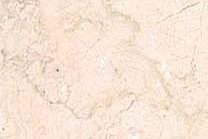| Other Names | Botticino Classico marble, Botticino Semiclassico Marble, Botticino Fiorito marble | |
|---|---|---|
| Availability | Inquire | |
| Finishes | Polished, Honed, Sawn, Rockfaced, Sandblasted, Tumbled, Acid Wash, Antique | |
| Country of Origin | Italy | |
| Absorption | 0.15-0.2% | |
| MIA Soundness Class | C | |
| Fire Performance | 0 flame spread (per ASTM E 84) | |
| Freeze Thaw Resistance | Good | |
| Panel Sizes | Up to 4'×8' (1220mm×2440mm) | |
| Structural Performance (on Honeycomb) | Excellent |
Botticino Marble Panels by StonePly
Botticino is a pink marble. Botticino is quarried in Italy. In architectural stone, the term marble refers to a metamorphic stone created from limestone and/or a serpentine that is capable of being polished. Since ancient times, palaces, government buildings, great monuments and the finest architectural works have been constructed from marble. Marbles durability in outdoor environments is proven by the ancient marble structures that still stand. Marble is however, not as durable as granite for outdoor construction or cladding panels and if a mirror polished surface is specified, the marble panel (if used outside) will lose its polish over time.
Additional Reading
You are probably more familiar with marble than you realize. From Michelangelo's mighty carrara marble David, to the intricately carved cenotaphs of the Taj Mahal, to the royal Marble Arch of Buckingham Palace, marble has been the stuff of civilized architecture and art for centuries. Being a form of limestone, it is softer than granite, making it more susceptible to deterioration and wear but a simple, regular maintenance routine will keep marble looking beautiful.
Marble has a soft, sophisticated aura. Small interior spaces will especially benefit from marble's less "busy" feel when compared to granite thanks to its large, flowing veins.
Certain marbles can be “book matched,” meaning the edges of two panels are paired to create a mirror image. Book matching's effect is best expressed on large panels.






